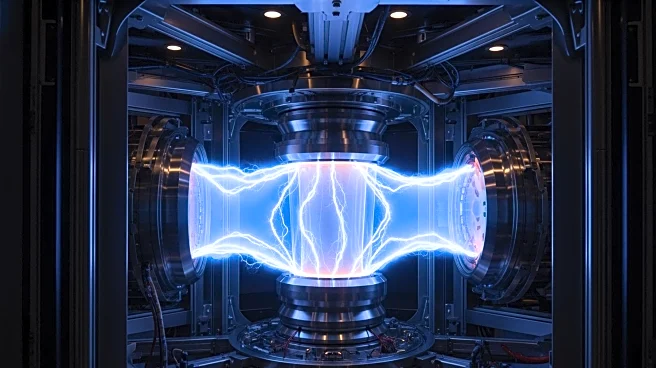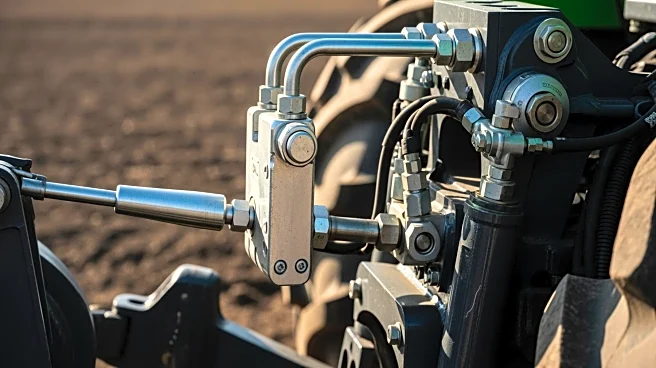What's Happening?
Ford has announced a $2 billion investment to transform its Louisville Assembly Plant into a facility capable of producing a new generation of affordable electric vehicles (EVs). This transformation involves abandoning the traditional moving assembly line system, a method pioneered by Henry Ford over a century ago. The new production system, described as a 'universal production system,' will feature a three-branched assembly tree and a universal EV platform. This platform will utilize lithium iron phosphate batteries, manufactured at Ford's new BlueOval Battery Park in Michigan. The first vehicle to be produced under this new system will be a mid-sized pickup truck, expected to launch in 2027 with a base price of $30,000.
AD
Why It's Important?
Ford's decision to overhaul its production system is a significant move in the competitive EV market, particularly against Chinese manufacturers. The new system aims to reduce manufacturing costs and increase efficiency, potentially allowing Ford to offer more affordable EVs to consumers. This shift is crucial as Ford's EV division has reported losses, and sales of its existing EV models are declining. The investment also reflects Ford's commitment to maintaining American jobs, despite the reduction in workforce at the Louisville plant. The collaboration with the United Auto Workers (UAW) suggests a focus on improving worker ergonomics and safety, which could set a precedent for future manufacturing practices.
What's Next?
Ford plans to begin retooling the Louisville plant by the end of the year, transitioning from producing the Ford Escape and Lincoln Corsair to the new EV lineup. The plant will eventually support 2,200 hourly workers, 600 fewer than currently employed. Ford has offered a special retirement incentive program to manage workforce changes. The new production system is expected to be operational by 2027, with the first EV model being a mid-sized pickup truck. The success of this initiative could influence other automakers to adopt similar production methods.
Beyond the Headlines
The shift to a new production system may have broader implications for the automotive industry, potentially leading to increased automation and changes in supply chain dynamics. Ford's collaboration with the UAW and focus on worker safety could influence labor relations and manufacturing standards across the industry. Additionally, the use of lithium iron phosphate batteries and large single-piece aluminum unicastings may drive innovation in EV design and production efficiency.










